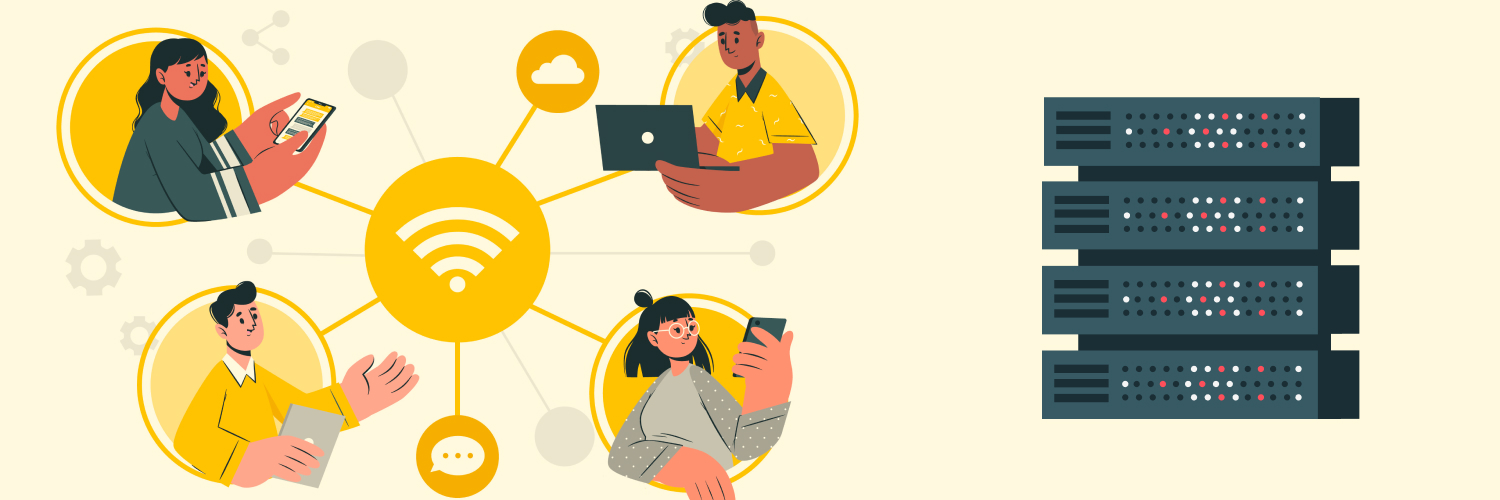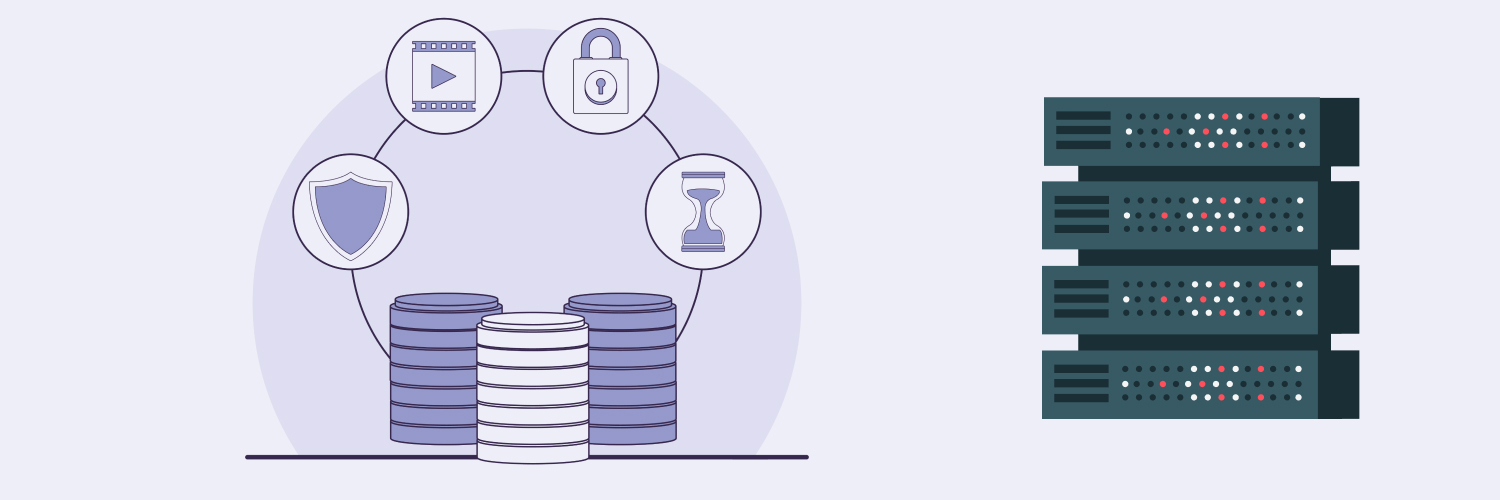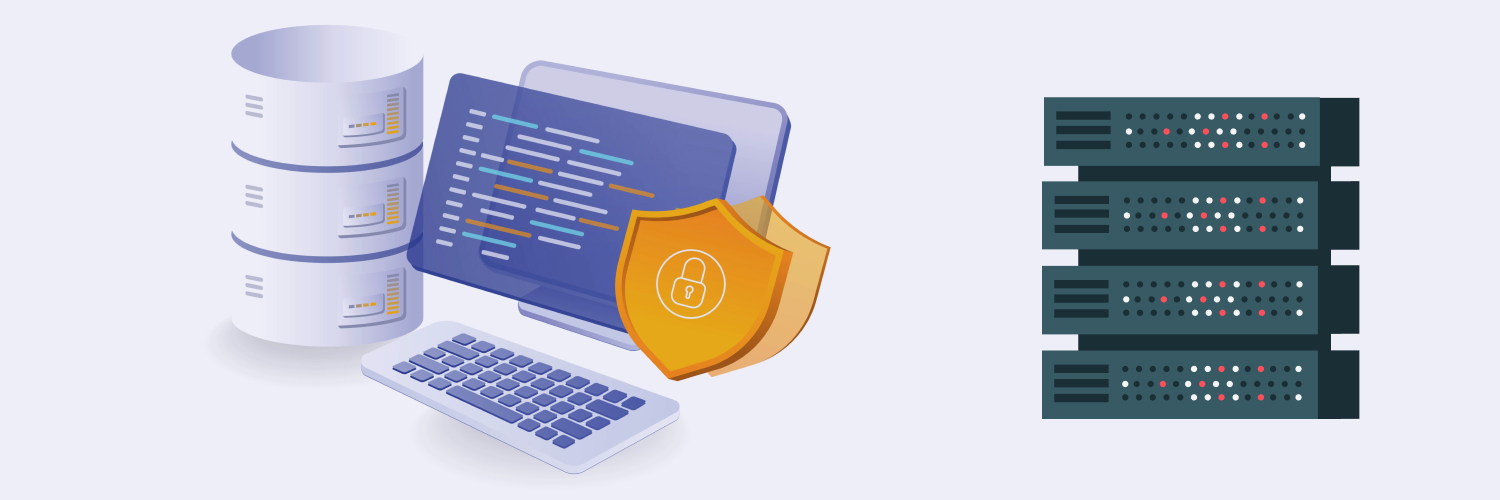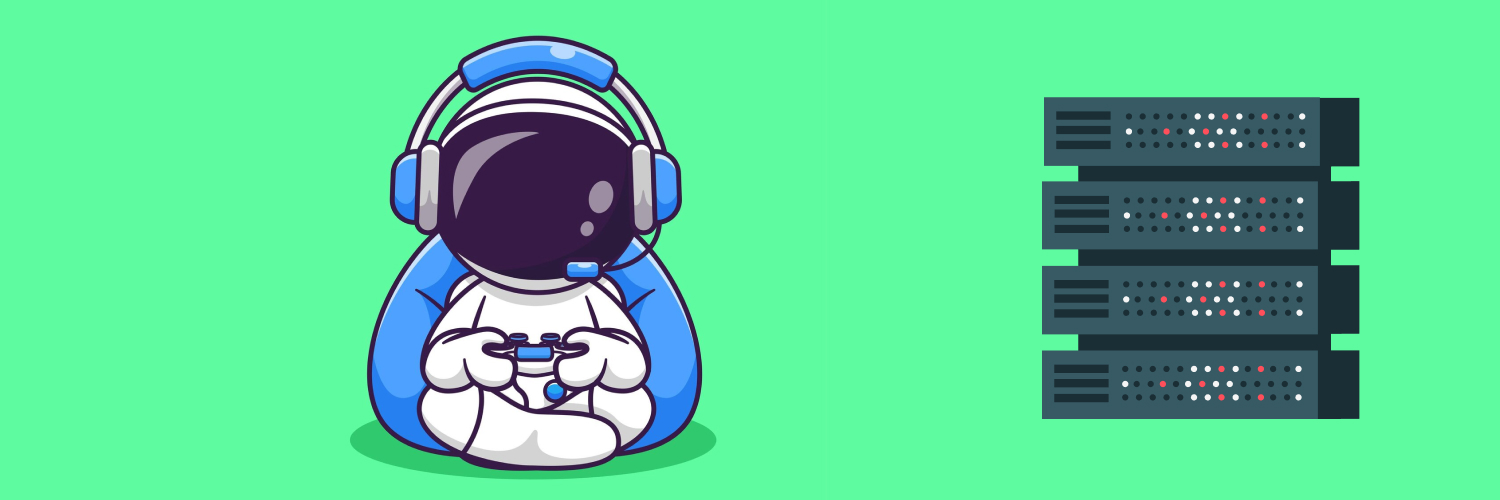A Guide To Understanding Web Sessions And Their Uses
With data becoming a more valuable asset, organizations are looking for ways to find information to capture for analysis and aid in business decisions. Web scraping tools extract data from the web for companies to download and store. These programs rely on sessions to track the information captured and sent back to a company.
We will explore what a web session is, how it works, and its importance in web scraping and other online functionality. Our article also goes into how proxy servers help manage sessions and make it easier for businesses to get the data they need.
What Is a Web Session?

Sessions represent distinct interactions between a user’s device and a server hosting business applications or other services. The clock starts ticking on sessions when a user makes their initial connection, then terminates when the user stops using the web application.
Keep in mind that everything on the internet falls under the control of protocols that control how data gets transmitted from one point to another. For example, application sessions fall into two categories.
Stateful
Applications that use stateful sessions let users store information so that users can return to it repeatedly. They keep returning to the same servers whenever they process a request. Banking sessions and email platforms are good examples of web applications that rely on stateful sessions. They count on the information captured during previous user interactions, and changes made by a user during an earlier session can affect what happens during a current one.
If something interrupts a transaction during a stateful session, the history remains so that users can go back to the information and continue what they were doing. In addition, information like settings, recent activity, and window location get tracked during stateful sessions.
Stateless
Applications that use stateless sessions don’t store information from one session to the next. As a result, every transaction gets treated as brand new. Examples of applications that use stateless sessions include content delivery networks or print servers. They exist to process short-term requests, then move on to the subsequent transactions as if the previous one did not happen. Stateless transactions resemble vending machines in that you put something in, get something back, then initiate a new purchase.
How Do Web Sessions Work?

The most significant difference between stateful and stateless operations is how the protocols deal with data. Storage is not a priority for stateless sessions, so the servers aren’t built to hold a lot of information. On the other hand, stateful applications rely on a server designed to store large amounts of data. Clients, applications, and other servers can tap into the info as needed.
HyperText Transfer Protocol (HTTP) is a stateless protocol since every transaction operates independently. As a result, it is more challenging to tie two different sessions together while web scraping. Both stateful and stateless sessions function similarly, even if they process data differently. The data is ready and available with stateful applications, while the information disappears during stateless sessions.
So how does that play into how web applications track different sessions from users?
During an HTTP session, a device makes a request to connect to a server through a web browser. When the server accepts the request, it creates a new session containing a session ID.
The browser responds as the end user sends requests using that ID. That process continues until the user decides to terminate the interaction. When the user returns to the site, the server taps into the previous session ID containing information about the user’s history.
Sessions typically time out if the user remains idle for a set time limit. If they don’t send requests by the time that period is up, the session is closed, and all user data is deleted. When the user decides to return to the website, it generates a new session and associated session ID.
Session examples
When you visit an e-commerce website and place items in your cart, they’re still there when you come back a couple of hours later. Those sites use sessions to keep up with your potential purchases. That information allows e-commerce retailers to send email notices encouraging users to return and complete a purchase.
Other examples of web applications using sessions include automatically filling out web forms with your information or logging into a website. The information you previously submitted to a site is available to every page you visit.
Let’s say a user named Carol visits a website that uses sessions designed to allow 30 minutes of inactivity. The clock starts ticking on Carol’s session from the moment she connects to the server supporting the website. Her current session ends if she goes 30 minutes without initiating any other transaction.
If Carol decides to click on a website link or respond to a chatbot, the clock resets, and she gets an additional 30 minutes. She gets the full allowance, even if she takes 25 minutes to have lunch. As long as she engages with the site within the five minutes left, she can return to the same information she was viewing.
Why Would You Need a Web Session?

Web sessions are how applications can remember specific details about users and their behavior. The stored information makes it easier for users to complete transactions or gather the necessary information.
In short, web sessions give websites a form of short-term memory about a user’s activity. That’s convenient for e-commerce websites since it lets them track shoppers’ habits and determine how to appeal to their preferences. Sessions allow visitors to add items to a cart one at a time versus having to select multiple things at once.
Sessions represent a balance between remembering everything about a user forever or wiping everything out immediately. As a result, applications have enough memory to engage with users and provide a better experience without needing to remember information about them that might not be relevant a month from now.
Tools used to capture data from a website typically mimic the actions of users at a much faster rate. They get assigned session IDs every time they initiate a transaction, but many sites have blocks to prevent this functionality. A quality proxy helps web scrapers get around these protections and allow for the ethical collection of data for business use.
How Do Cookies Compare to Sessions?

Every time you initiate a request to a server through a web browser, it sends back a cookie along with its response. Cookies are small text files containing information about a user, like pages they’ve visited or how long they were on the site. They also include cookies holding data about past visits to that page.
While they may seem similar, cookies and sessions are two separate things. Cookies don’t rely on sessions. Instead, they are stored on a user’s device to allow them quicker access to information. These cookies remain until they expire or are deleted manually by a user.
While cookies don’t need sessions to exist, sessions do rely on cookies. Cookies typically are only around 4KB, while sessions can expand up to 128MB, which is a big difference. Also, there’s no encryption placed on cookies, meaning they’re easily accessed and read if you can get into a user’s advice. Sessions are typically encrypted and stored securely on a server.
Other significant differences between cookies and sessions include the fact that:
- Cookies last as long as the user lets them remain on their device, while sessions typically end when the user leaves a site.
- Users can choose to disable the creation of cookies, but they can’t stop the automatic creation of sessions.
- Cookies can be more convenient when it comes to allowing for the ongoing persistence of user data for an extended period, while the information provided to a session must be reentered every time.
While cookies last longer and are easier to use, they’re less secure and potentially compromise a device’s security. Sessions are shorter and must be reengaged every time you want to interact with a site, putting security above convenience. If a site wants information about a user to remain once they leave a browser, it likely uses cookies. Otherwise, they only use sessions to facilitate transactions during a short period.
How Do Sessions Work in Web Scraping?

Using a proxy with a web scraper makes it possible for the tools to open multiple connections and sessions with one or more websites. If you want to access many pages and capture information quickly, it will take a long time to do that from one ID. The actions of the web scraper could trigger interruptions like prompting you to verify that you are a real person through CAPTCHA or banning the IP address used by your web scraper.
How Do Proxies Help Manage Sessions?

Proxies sit between a client, like a user or a web scraper, and a target server. An essential function of a proxy is masking a web scraper’s IP address and preventing it from getting blocked, but there are many other ways you can use proxies to optimize connection routes.
Using proxies helps web scrapers access information that might be geographically locked, like data from a site based in a foreign country. Proxies can also distribute traffic from a web scraper to more than one session ID. They allow web scrapers to generate an unlimited number of sessions to collect data sets from different websites at the same time.
Many sites flag identities making multiple connections as nonhuman, so proxies help web scrapers get around those limitations. In addition, initiating numerous sessions using a web proxy allows web scrapers to resemble multiple organic users.
Now let’s look at how you would use proxies to manage your sessions.
Rotating sessions
Rotating proxies let you get around the limitations placed on web scrapers and cycle between different IDs. That enables you to subvert any limits set on the number of times an ID can send transaction requests to a website. In addition, the proxy lets you move from one ID to another until you’ve extracted all your required data. That flexibility helps you get around CAPTCHA requests and avoid getting banned.
Sessions generated by rotating proxies automatically change every time the web scraper makes a connection request. It connects to a site using one IP address, then changes it for every subsequent action. Many web scrapers rely on a pool of rotating proxies to generate a new IP address for every page refresh or link click.
For general web scraping tasks, rotating sessions work best. They’re helpful when you need to collect information like product prices from a website page containing many rows and subpages. You also avoid making continuous requests from a single session.
Sticky sessions
Sticky proxies do not change the IP address used by a web scraper when they make a new request. Sticky sessions last as long as your proxy provider allows, typically around 30 minutes.
With sticky sessions, proxies assign a unique IP address to manage multiple extended sessions through your web scraper. You should choose a sticky proxy if you want to avoid the appearance of inorganic behavior, so the web service doesn’t get suspicious and terminate your session.
Sticky sessions are useful for collecting information in a continuous session from accounts owned by a business, such as social media accounts or e-commerce platforms.
How Web Proxies Help You Use Sessions to Your Advantage

E-commerce businesses and other companies understand that the information on their websites may be valuable to competitors. They may also be concerned about how businesses using web scraping automation might impact a customer’s experience. Unmanageable traffic levels from multiple sessions can cause the site to slow or shut down.
For that reason, many business sites use anti-scraping technology to help servers look for suspicious activity. The bot gets shut down if the movements and speed don’t resemble that of a human user. That’s why using a web proxy capable of managing sticky or rotating sessions is important.
If you’re using web scrapers to collect data for business purposes, you will need many sticky or rotating proxies to manage your needs. If you’re unsure of the protections placed around a specific website, your best bet is to go with a rotating proxy to prevent a particular IP address from getting blocked.
Rotating Proxies and E-commerce

With price becoming a bigger issue than ever as they pay more for products, many businesses are doing what they can to make data-driven decisions to stay ahead of competitors. This includes business growth, penetrating new markets, and sustaining momentum in challenging markets.
Many e-commerce sites have pages of products with vital information about pricing. It’s about more than just the listed price and product description. Those product listings typically contain keywords used by competitors to get their entry to the top of search engine results pages.
Businesses also use web scrapers to collect product reviews to determine customer pain points. If they were to try to gather this information manually, it would take a lot of time and likely result in numerous data entry errors. By the time they captured enough information for analysis, the information might have changed, rendering the previous data sets irrelevant.
Rotating proxies allow businesses to use web scrapers to provide an ongoing stream of new information, so they can keep data sets updated with real-time information. As a result, companies gain the ability to immediately spot patterns in the data and make well-informed business decisions.
Evaluating Proxies for Purchase

Now that you better understand how sessions work and the importance of using a proxy, let’s go over what you should look for when evaluating the technology. You want to have a solid understanding of the most important features of a quality proxy to aid you in making the right choice for your web scraping needs.
Proxy type
Look for proxies that work with either Internet Protocol version 4 (IPv4) or Internet Protocol Version 6 (IPv6) addresses. All sites on the internet can work with an IPv4 address. Sometimes, you may have a use case where it’s necessary to generate an IPv6 address. For that reason, you want a proxy solution capable of handling both. Because there are many more IPv6 addresses available, it’s more likely they’ve been tracked and banned by a specific website.
Internet protocol
Internet protocols are standards governing the way data packets travel over a network. One of them is HTTP, which has been around since the 90s. HTTP lacks data encryption, making it more vulnerable to security attacks, while HTTPS is a more secure update to HTTP.
The SOCKS internet protocol relies on a universal connectional, and SOCKS addresses can handle requests from applications using SOCKS, HTTP, HTTPS, or more obscure protocols.
Keep the above in mind when evaluating proxies. Think about whether you are more likely to need a proxy capable of handling SOCKS versus HTTP. HTTP and HTTPS proxies work better for tasks like web scraping.
Dedicated vs. semi-dedicated proxy
Another issue to consider is whether you want to invest in a semi-dedicated, or shared, server versus a dedicated one for managing sessions generated through your web scraping processes. Up to three different users may be using a semi-dedicated proxy at a given moment. The advantage of using a dedicated proxy is that you maintain complete control and don’t have to worry about the actions of another user getting your IP addresses banned.
Set up
You can set proxies up to work with sessions by connecting through a browser, operating system, or specific software like a web scraper. If you’re going to use a proxy to operate a web scraper, make sure that you follow the directions of the software and that your proxy choice is compatible.
Available regions
Make sure that any proxy you purchase works as intended in your target region and protocols. For example, if you’re working primarily with the internet, then your best bet is to use a proxy that can handle HTTP(S).
Bandwidth
Once you locate your ideal proxy, make sure that the bandwidth limits and speed can handle your web scraping needs. The last thing you want is to connect to your web scraper only to have everything slow to a crawl.
Summing Up Web Sessions

If you clicked on this article to get the answers to “What is a web session?” we hope this article had what you’re looking for and helped you understand the differences between stateful and stateless sessions and how they impact your data collection efforts.
If your organization is looking to implement web scraping to cover your data collection needs, you’ll need reliable proxies that help you manage multiple sessions, protect your IP addresses, and avoid detection by anti-scraping technology. When you’re looking for proxies, narrow your choices down by how well each option matches up with your specific data collection needs and the technology you’re looking to employ.
Rayobyte has a reputation as a reliable proxy provider, meaning you can always count on us to provide a superior product. We pride ourselves on offering a variety of quality web proxy solutions:
Rayobyte helps small companies compete against larger enterprises to help aggregate data for analytics purposes. Find out more about how we can help you achieve your business goals using our proxy products by contacting one of our experts.
The information contained within this article, including information posted by official staff, guest-submitted material, message board postings, or other third-party material is presented solely for the purposes of education and furtherance of the knowledge of the reader. All trademarks used in this publication are hereby acknowledged as the property of their respective owners.






